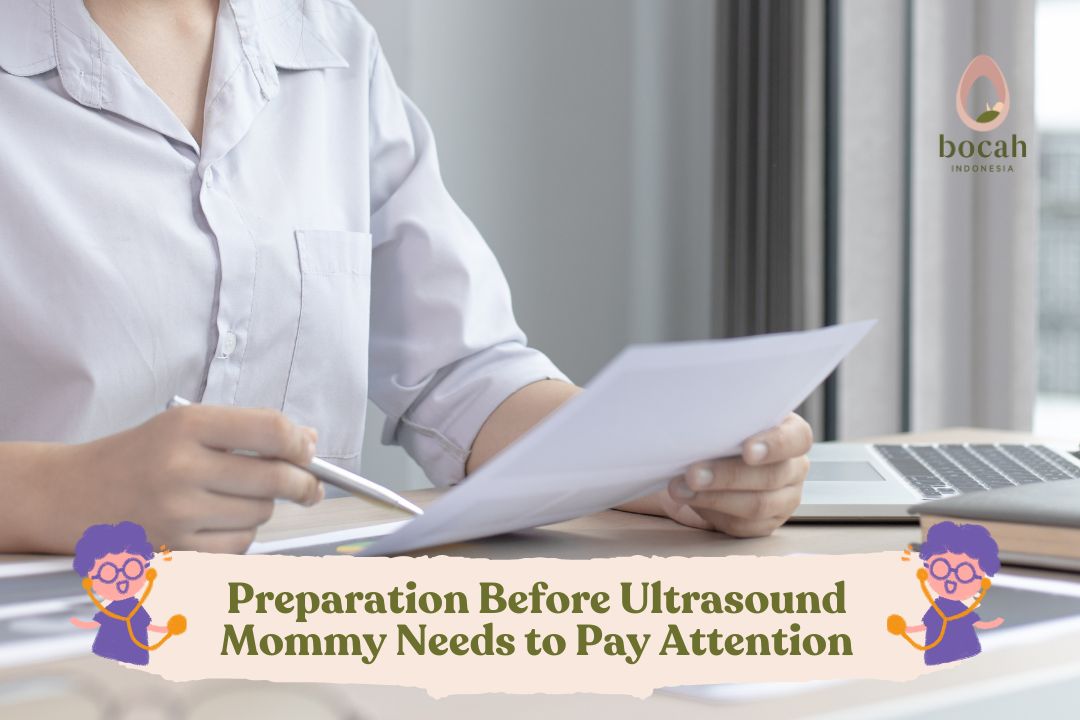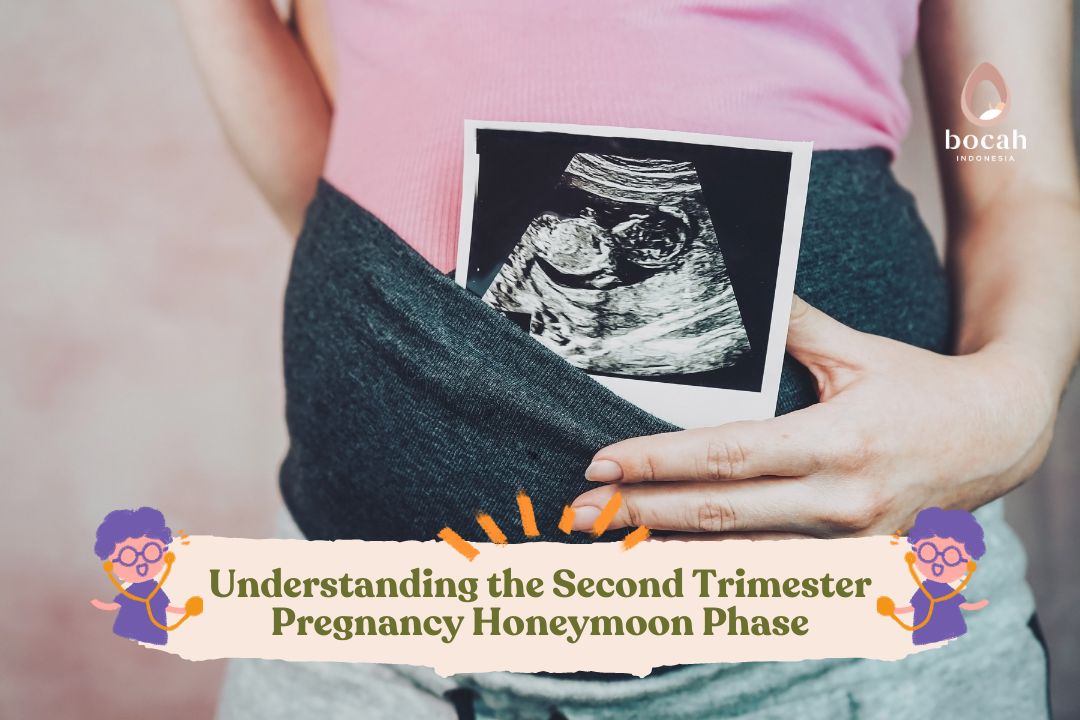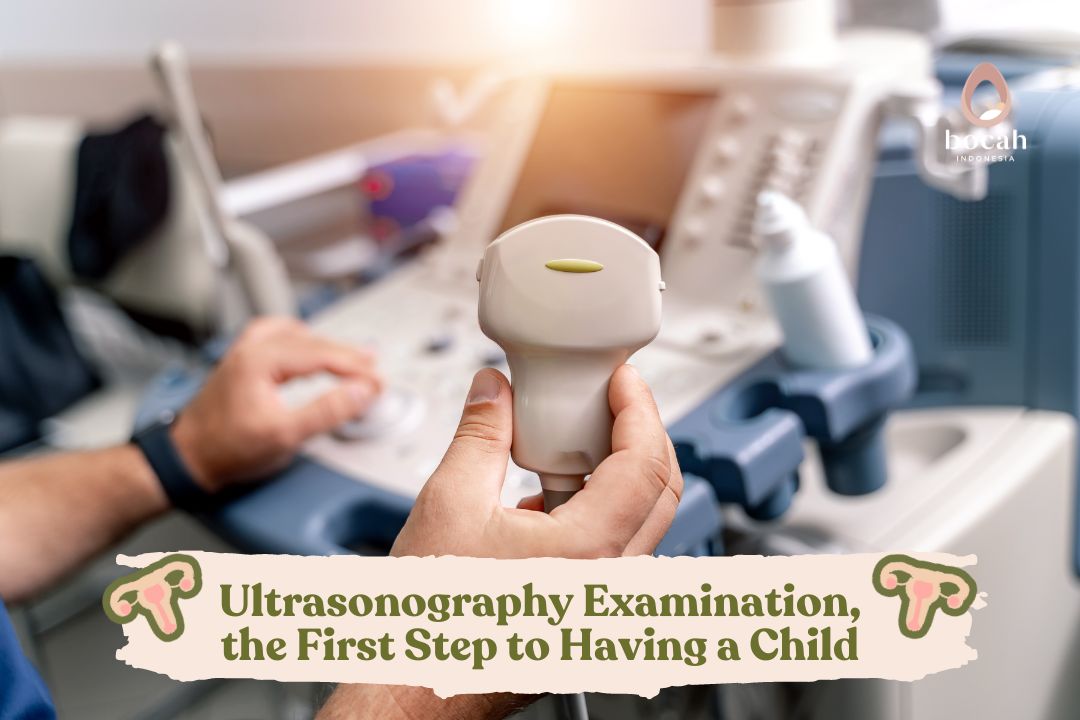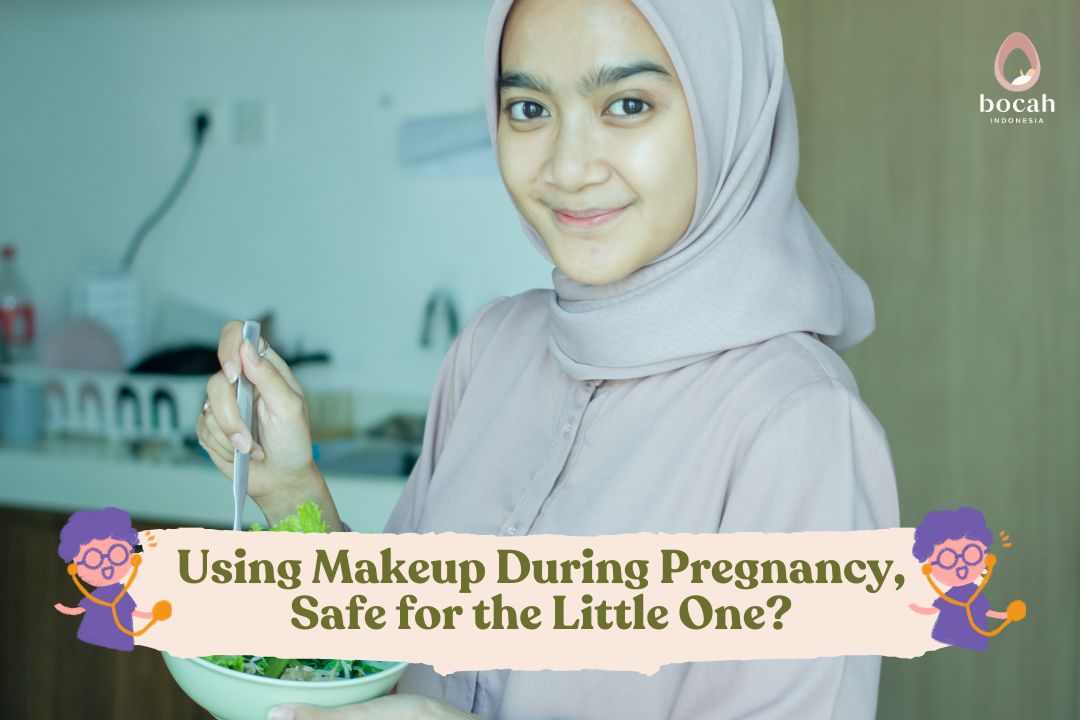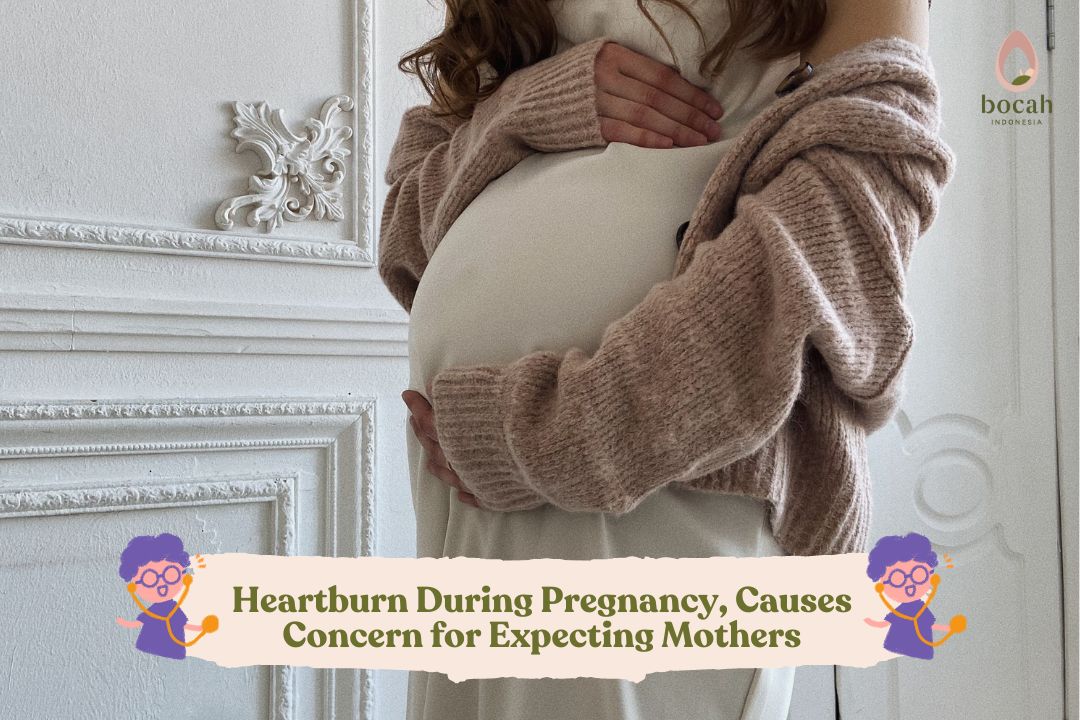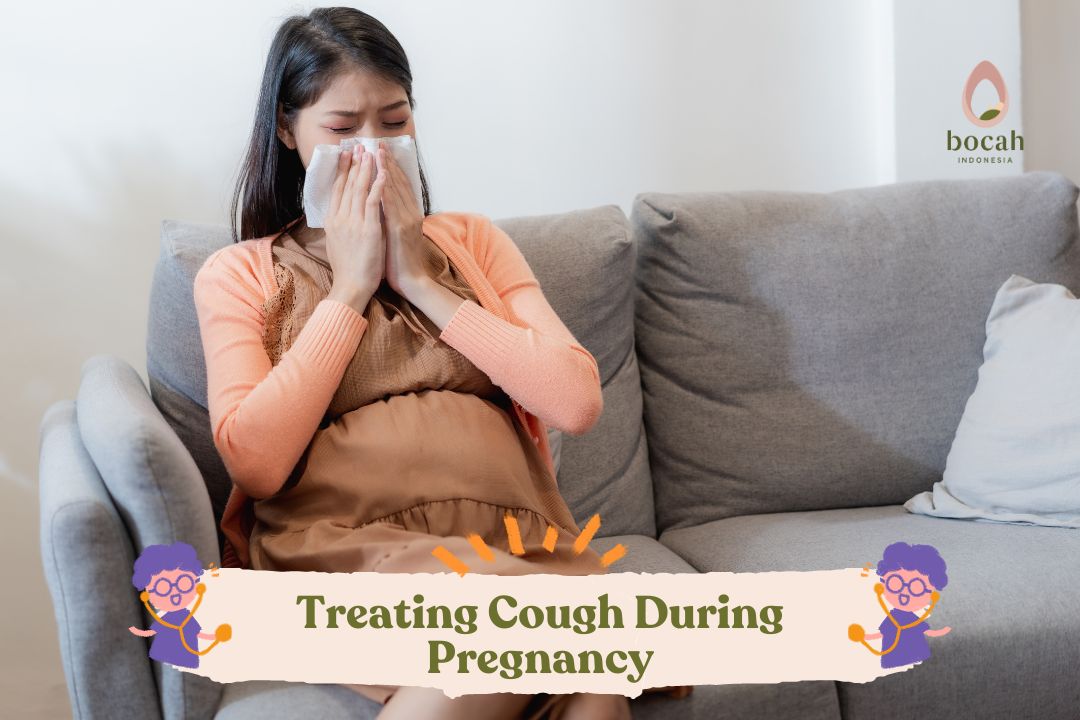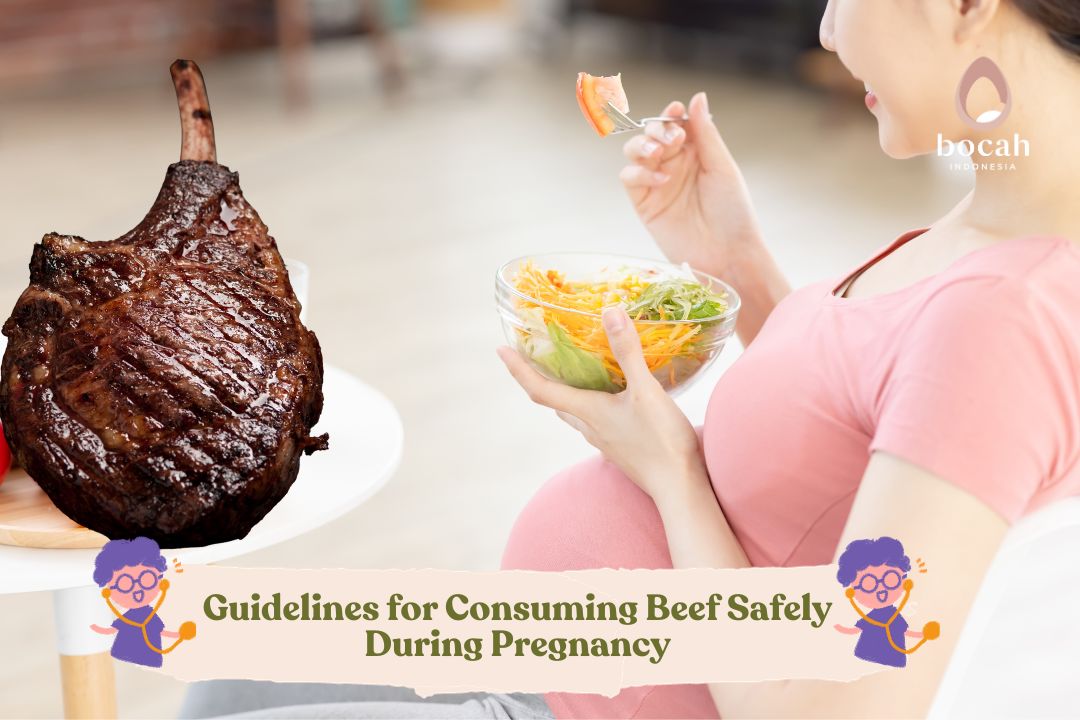Itching on the Stomach during the First Trimester of Pregnancy: What Causes It?
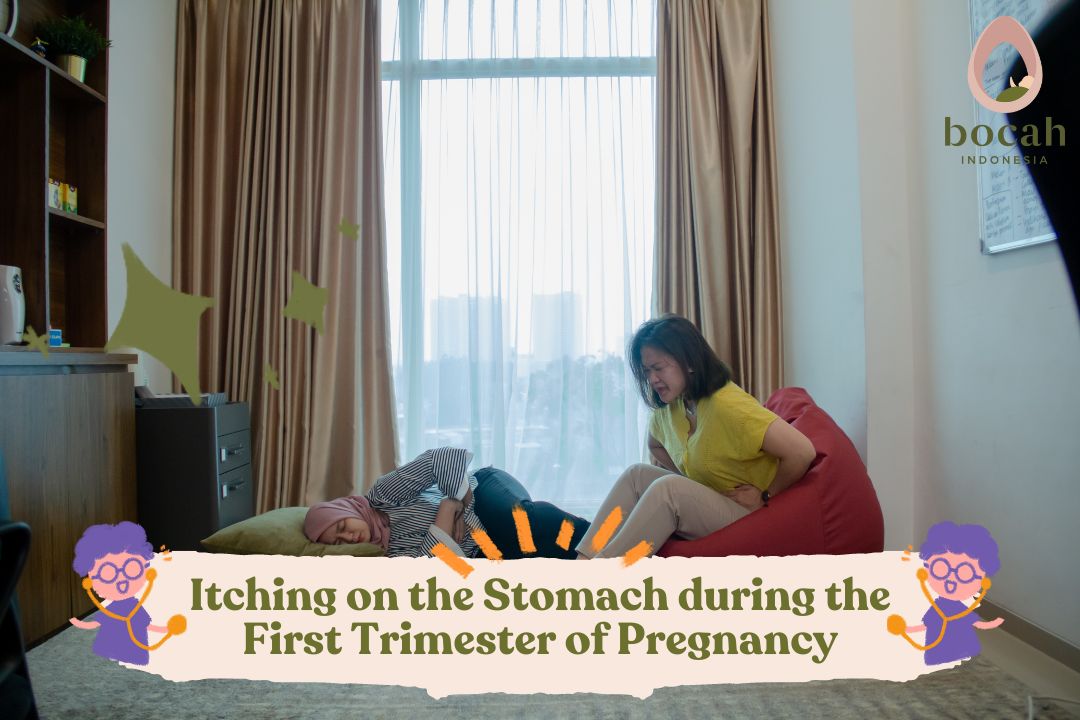
Itchy sensation in the stomach during early pregnancy can be uncomfortable. However, there are several ways for mothers to deal with this issue.
For pregnant mothers, you might have heard about various pregnancy symptoms like morning sickness, weight gain, and swollen ankles. However, what many pregnant mothers might not know is the symptom of itchy stomach or itchy navel.
While not always a serious problem, itching on the stomach can be bothersome and cause discomfort. If accompanied by other suspicious symptoms, it’s important to consult with a medical professional to get the correct diagnosis and appropriate treatment.
Causes of Itching on the Stomach during Pregnancy
There are several common causes of itching on the stomach during pregnancy. Here are some factors that can lead to stomach itching during pregnancy:
1. Stretching of the Mother’s Skin
The growing fetus causes the mother’s stomach to stretch, resulting in skin tension. The stretching of the pregnant mother’s skin is often accompanied by pinkish-red lines along the stomach, known as stretch marks. Besides the stomach, stretch marks are also common on the breasts, thighs, and buttocks during pregnancy.
Tanya Mincah tentang Promil?
The continuous growth of the baby each month will keep putting pressure on the skin around your stomach, causing it to stretch. Strong skin stretching can also affect the thin skin around your navel, leading to itching, irritation, or even pain.
2. Hormonal Changes
The increase in the hormone progesterone during pregnancy can impact the production of natural skin oil (sebum). Sebum is the natural oil produced by oil glands in the skin to maintain moisture and smoothness. Hormonal changes can lead to decreased sebum production, resulting in drier and itchier skin.
3. Pruritic Urticarial Papules and Plaques of Pregnancy (PUPPP)
Pruritic Urticarial Papules and Plaques of Pregnancy (PUPPP) is also known as pregnancy rash or gestational erythema. This condition causes small red bumps and hives on the skin of pregnant mothers during the later months of pregnancy. These bumps can form patches or rashes on the stomach that are extremely itchy. The rash can also spread to the thighs and buttocks of pregnant mothers.
PUPPP affects about 1 in 160 pregnancies, with research indicating that it is most common in the first trimester of the first pregnancy or shortly after childbirth.
PUPPP is benign and usually resolves shortly after delivery. Doctors can prescribe topical corticosteroid medications that you can apply to the itchy area, or you can use cold compresses. However, if the affected skin area is extensive, doctors might recommend systemic glucocorticoids to alleviate itching.
4. Pemphigoid Gestationis
Pemphigoid Gestationis is a rare autoimmune disorder that can occur in pregnant mothers. This disorder can cause extreme itching on the stomach, leading to significant frustration for the person experiencing the itching.
Pemphigoid Gestationis can start at any point during pregnancy but is more likely to occur in the second or third trimester. It typically begins with a series of small red bumps on the body that can then spread to other areas, and many individuals also develop fluid-filled blisters in the affected areas.
This condition occurs because autoantibodies, known as immunoglobulin G (IgG) autoantibodies, attack your own body’s tissues, creating inflammation and fluid buildup within the layers of the skin.
Although the extreme itching tends to resolve on its own after childbirth, doctors might prescribe topical corticosteroids for the affected area, and you might also consider taking oral antihistamines to help alleviate itching. Intrahepatic
5. Cholestasis of Pregnancy
Intrahepatic Cholestasis of Pregnancy (ICP), also known as pregnancy-related cholestasis, is a condition that prevents the liver from releasing bile, which is essential for breaking down the food you eat during digestion. As a result, bile accumulates in the liver and then leaks into the bloodstream, causing itching.
One unique feature of this condition is the absence of a rash. If you’re experiencing severe itching but no visible rash, you might be experiencing pregnancy-related cholestasis.
Instead of just applying moisturizer or taking antihistamines, it’s important to contact a doctor immediately because intrahepatic cholestasis of pregnancy is associated with higher risks such as preterm delivery, fetal distress during delivery, and fetal death.
Apart from itching, other symptoms of cholestasis include pale or yellowish stools and yellowing of the skin, eyes, or mucous membranes. You might need to take a medication called ursodiol to lower bile levels in the blood. Pregnancy-related cholestasis typically resolves after you give birth.
Relieving Itching on the Pregnant Belly
If you feel that the itchiness on your belly has become quite bothersome and frustrating, there are several things you can actually do to prevent or reduce the itchiness on your stomach. Here are some options for relieving itching for pregnant mothers:
- Use moisturizer, apply a heavy moisturizer to your belly to help alleviate itching caused by dry skin. The best time to apply moisturizer evenly is after taking a bath.
- Take a warm bath, a warm bath can relieve the itching sensation on the skin. However, it’s advisable not to take too many warm baths as they can further dry out your skin.
- Use a soft towel that doesn’t irritate your skin, gently pat your skin dry.
- Take an oatmeal bath, experts often recommend adding a handful of oatmeal to a warm bath as a strategy to manage eczema flare-ups. This might also help with itching due to pregnancy. Add oatmeal to running water and soak for 10 to 15 minutes.
- Cold compress, a cold compress is another way to relieve discomfort from eczema flare-ups or itchy skin on your belly.
- Topical corticosteroids are over-the-counter creams that can reduce itching on your belly. However, before applying topical corticosteroid creams, make sure to consult a doctor first.
- Oral antihistamines might be temporarily effective in reducing itching, but like with any new medication, make sure you’ve received recommendations from your doctor beforehand.
These are some causes and ways to manage itching on the pregnant belly. Don’t forget to maintain good health and manage stress during pregnancy, as this will impact both your health and the health of your baby.
Source:
- Bergman H, et al. Diakses 2023. Pruritus in pregnancy: Treatment of dermatoses unique to pregnancy.
www.ncbi.nlm.nih.gov/pmc/articles/PMC3860924/ - Intrahepatic cholestasis of pregnancy (ICP). (n.d.). Diakses 2023.
www.liverfoundation.org/for-patients/about-the-liver/diseases-of-the-liver/intrahepatic-cholestasis-of-pregnancy/ - Dry skin relief. Diakses 2023.
Www.aad.org/public/everyday-care/skin-care-basics/dry/dry-skin-relief - Home remedies: What can relieve itchy eczema?. Diakses 2023.
Www.aad.org/public/diseases/eczema/childhood/itch-relief/home-remedies - Huilaja L, et al. (2014). Gestational pemphigoid.
Www.ojrd.biomedcentral.com/articles/10.1186/s13023-014-0136-2 - Pemphigoid gestationis. (2019).
Www.rarediseases.info.nih.gov/diseases/6497/pemphigoid-gestationis
- 4 Herbal Medicine to Improve Male Fertility - 01/07/2025
- 7 Signs of PCOS Every Woman Should Know - 30/06/2025
- Ultimate Guide: Boosting Egg Quality for a Healthy Pregnancy Journey - 23/06/2025


